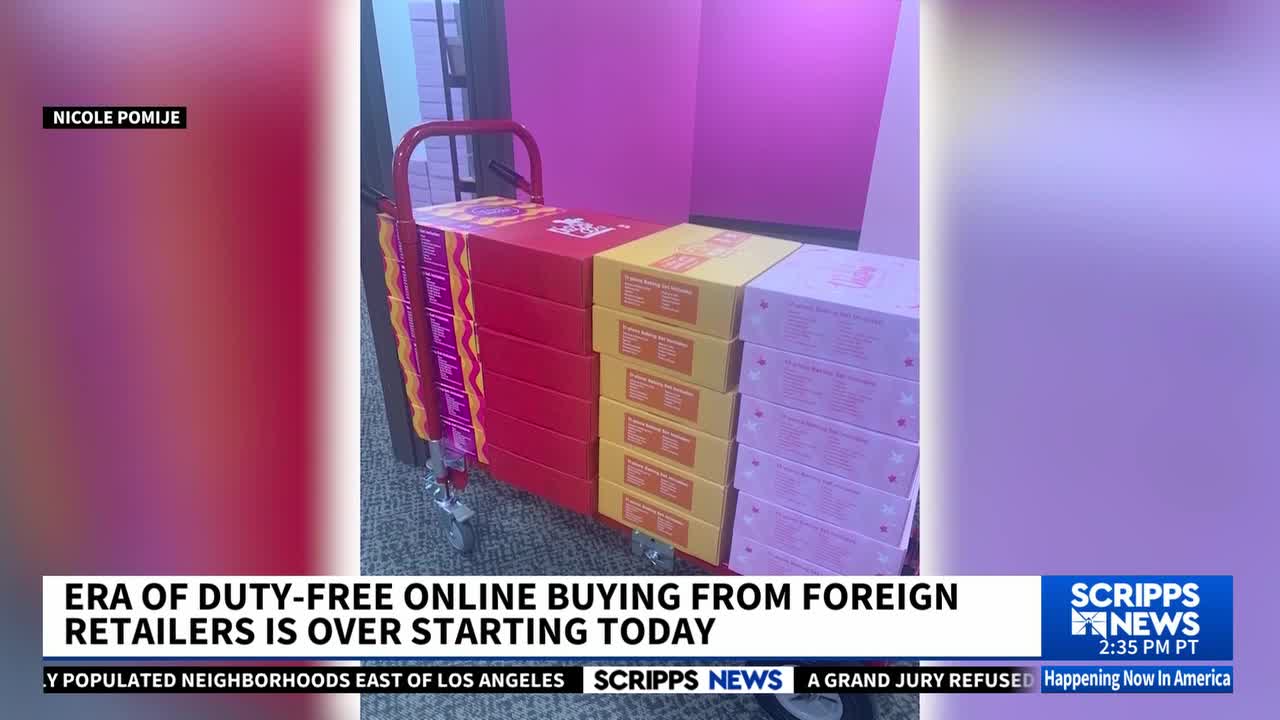A wide range of small imports to the U.S. lost duty-free status starting on Friday, as the Trump administration ends de minimis exemptions on imported goods valued at less than $800.
All commercial shipments that were formerly eligible for de minimis exception will be subject to full U.S. duties and inspection by customs officers.
The change expands the new application of customs fees, which previously only applied to parcels from China and Hong Kong since May. Under the new rules, all countries trading with the U.S. will be subject to new customs inspection and taxes on qualifying parcels.
Personal items and letters will not be affected by the changes. There will also be exemptions for personal travel and gifts, a senior administration official said.
RELATED STORY | Trump increases tariffs on steel and aluminum, which will likely increase consumer prices
But the Trump administration has focused on de minimis shipping as a health and safety hazard, particularly concerning the shipment of fentanyl and other drugs and drug materials.
Most customs seizures in 2024 involved de minimis shipments, a senior administration official said. Such stoppages accounted for 97% of intellectual property seizures and 77% of health and safety seizures. Weapons parts and drug components were frequently seized, the official said, with more than 800 fentanyl cases.
President Trump has said criminals use the de minimis loophole to send drugs into the country and says it unfairly disadvantages American producers.
The wider elimination of the rule will challenge businesses, says supply chain analyst Ashley Hetrick.
"Either they're going to be paying tariffs on some of the shipments that previously fell under that exemption, or they're going to be forced to pass on those added tariffs and duties to customers as they send in those shipments," Hetrick said.
Nicole Pomije, whose company makes baking and cooking kits for kids, is facing that new dilemma.
"From a small business perspective, it's a scary thing. And it could essentially put us out of business if we can't find an alternative for some of these supplies," Pomije said.
Pomije says she's doing everything in her power not to pass costs onto consumers, but says the new change could cut her margins.
"It can mean the difference between, like, for us, tens of thousands of dollars when we're ordering large scale inventory," she said.





